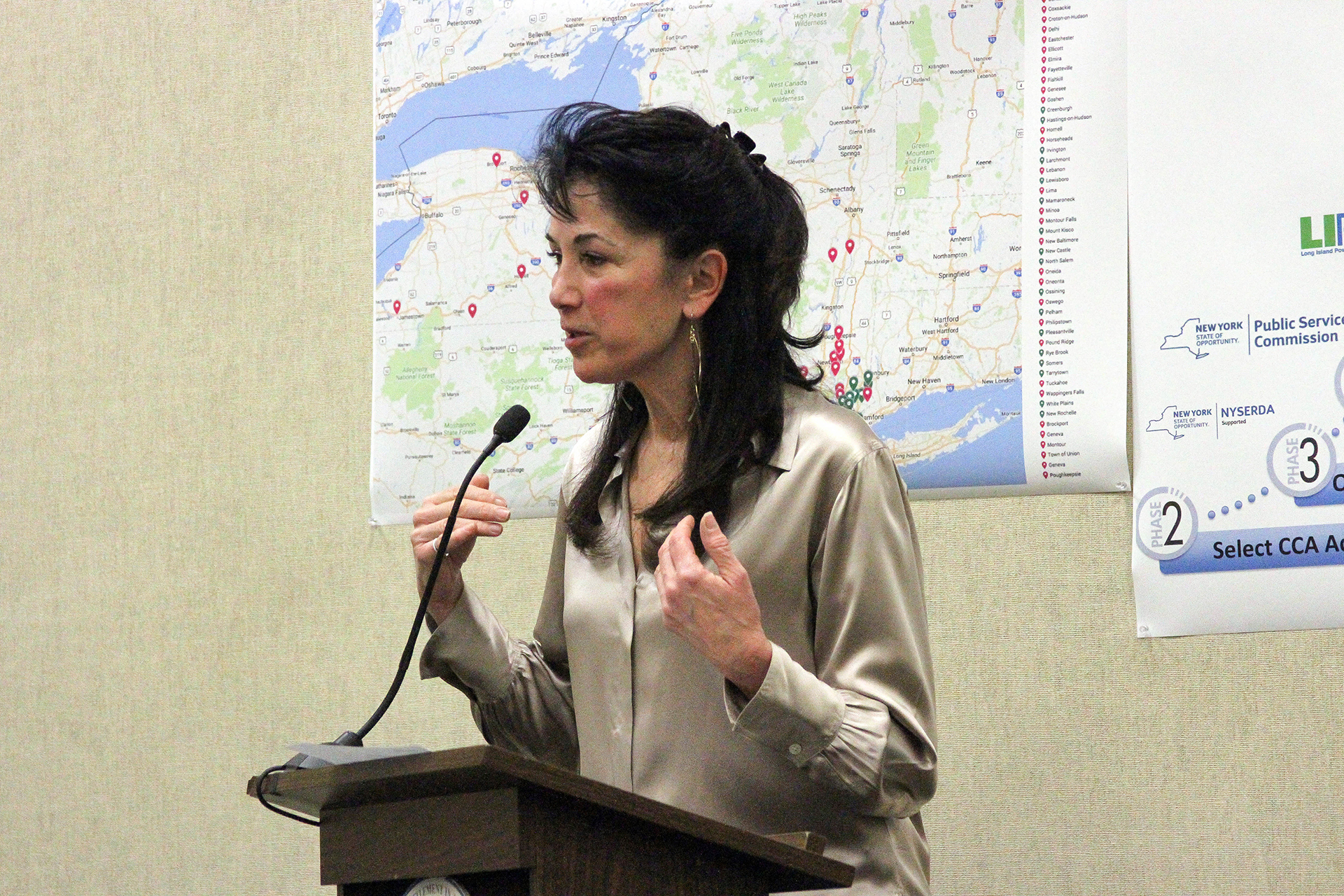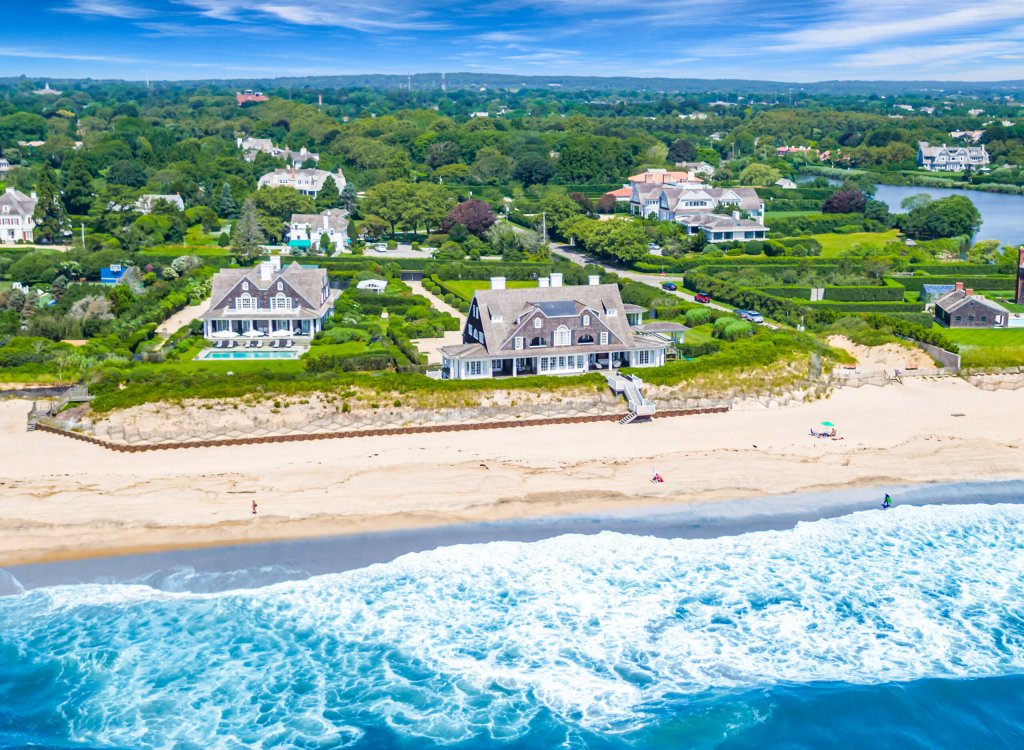A Call For Choice


Independent/Desiree Keegan
Members of the Southampton Town Sustainability Committee and other speakers were unanimous November 27 in asking the town board to take the first step toward creating a community choice aggregation program, or CCA, which would allow the town to obtain more favorable energy rates for participants.
Under such a program, the town or its agent would act as broker for utility customers and negotiate directly with power suppliers for more favorable rates. As part of those negotiations, it could require that utilities use green sources, such as solar, wind, or hydropower.
Lynn Arthur, who chairs the energy subcommittee of the town’s Sustainability Committee, said that 50 municipalities in New York State have already passed local laws allowing them to establish CCAs, and half of them have moved forward to establish a CCA program in Westchester County.
Since that CCA was created more than two years ago, the 130,000 utility customers who are members have saved a total of $15 million, she told the board.
Given that the town has adopted a goal of obtaining 100 percent of its energy from renewable sources by the year 2025, Arthur said the Sustainability Committee believed the town had an obligation to consider establishing a CCA and requesting that the Long Island Power Authority provide energy from renewable sources to those customers who request it.
She said the town could be a pioneer on Long Island. “No one on Long Island has yet to step forward and say we’d like to see if a CCA can work here,” she said.
Arthur stressed, though, that there were many steps in the process and the town could abandon the proposal at any time along the way without incurring any unnecessary costs.
A handful of speakers, including Frank Dalene and Joan McGivern, two members of East Hampton Town’s Sustainability Committee, also spoke in favor of the proposal.
Dalene said East Hampton is also considering adopting a CCA law and said doing so would help it break free of the “monopolistic supply of energy.” He urged the two towns to work together on a proposal.
McGivern called for an even broader effort. She said it would take several towns and villages to create a single CCA large enough to fully leverage buying power. She urged Southampton “to reach out to its neighboring towns and villages” and establish an independent not-for-profit organization to serve as the program’s administrator.
Ross Slotnick, the chief legislative aide for Suffolk County Legislator Bridget Fleming appeared on her behalf, to inform the board that she is working on legislation that would do just that: establish a countywide CCA.
That would seemingly answer one of the concerns of Supervisor Jay Schneiderman, who in a previous discussion, said he would like to see Brookhaven Town and its large population brought into the fold as a means to increase the CCA’s bargaining power.
Schneiderman added that LIPA would have to sign off on the establishment of a CCA and said he wanted to discuss the issue with its representatives before the town got too far along in the discussions. Although the town would not replace LIPA or its grid manager, PSEG — Long Island, the supervisor said acting as an energy broker would be a new role.
“Towns do lots of things,” he said, “but we are typically not in the position of negotiating power contracts with utilities.”
Arthur said members of the Sustainability Committee were prepared to reach out to citizen advisory committee, civic organizations, and other groups to explain the benefits, and the town board agreed to keep the hearing open until January.
sjkotz@indyeastend.com



